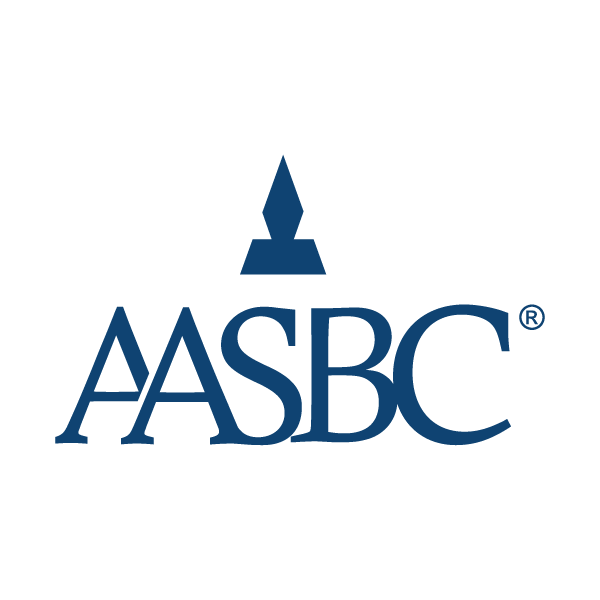|
Authored by Matt Gannon Imagine if you will, a man. He is age 83 and has been living in a care home for the last several months. Let’s call this man Stanley*. Stanley is living with Alzheimer’s disease. It has reached the later stage, to the point where Stanley can no longer perform actions in sequence, whether it is getting dressed, brushing his teeth, or putting together the necessary steps of having a successful trip to the bathroom, as he is 100% incontinent. Stanley will even use a razor to try and brush his teeth and the shaving cream may take place of the toothpaste if someone isn’t there to prevent it. Stanley is mobile without the use of any type of walking device. He is a very classy guy and very polite, but he has lost the ability to clearly express himself, verbally. That is to say, he can no longer stream full sentences together, so instead, he relies on short replies to what others say: “yes," "no," or "you becha,” or a nod or shake of the head one way or the other. There are also times when he will smile at certain things but say nothing. Stanley’s family is very supportive and visits him daily. I am one of his caregivers. In His Element  One day while I was about to clean the kitchen area after serving Sunday lunch, I found Stanley standing at the sink. Before him was a large number of dishes needing attention and were waiting for me. I always have one side of the sink filled with fresh hot soapy water, and of course, a trusted scrub brush and clean towels for drying. Stanley at the sink unbuttoned and rolled up his black and red striped dress shirt sleeves, and after a few seconds of assessing the situation, he started to dig into the washing, rinsing, and stacking process with the mugs. He was determined and in his element, cranking out clean, steaming dishes left and right. Stunned, I joined him at his side and wiped them all clean to put them away. This process continued for at least fifteen minutes and Stanley didn’t miss a beat. In fact, when washing the many coffee mugs he used a technique I was sure he had done countless times before for many years while performing the ever-so joyful act of dishwashing. For each mug, Stanley repeatedly took the mug in his hand, dipped it in the hot steaming soap water, and then filled the mug nearly all the way from the running water in the opposite sink. Stanley then covered the top of the cup with one hand, while placing his other hand underneath, and he shook the water inside back and forth for a thorough cleaning, poured out the water, then refilled once more, repeating the shaking technique, poured the water out once again, then rinsing away any left-over soap residue (not shaking this time) and handing the clean cup over to me. And he repeated the same process until all the mugs were thoroughly rinsed and cleaned. A Driving Force Within What did this experience teach me about Stanley? As I stood witness to this man who just that morning needed all of my help to get himself out of his urine-soaked bed, in and out of the shower, groomed and dressed, I understood that “something” was a driving force within him and it came from both his mind and his body working together as one - with his environment in the moment. I know what muscle memory is and I understand about people living with dementia having lucid moments, but Stanley’s participation in the dishwashing lasted nearly half an hour and I realized he was doing something he knew how to do from a lifetime of experience, the same way he had so many times before, his way, with his technique to get the job done. As I look back, I believe this was a manifestation of consciousness; the consciousness that does not separate between mind and the body, or the person and Alzheimer’s disease, but instead allowed this man for a bit of time to do what would seem impossible given his supposed level of impairment. And, yes, the time to complete the chore in this fluid way is brief in the fullness of a complete day, and then he is in need of assistance and direction once again because he just cannot connect the dots to any new activity, but this moment and experience in time were real, and Stanley did it. I think Stanley experienced what perhaps some artists refer to as “the mind in the hand,” some mysterious force that creates a type of auto-pilot within one’s self. Sort of like driving for 20 minutes and stopping at a red light to think…gosh, I don’t really recall driving to this point, but I somehow did it. It wasn’t Stanley’s mind alone that was trying to get the task done by repetitiously cleaning mugs, soup cups, and plates, but rather his mind and his body connected to the moment in time and to the environment he was in…to himself – and to the meditation of dishwashing. Stanley was Stanley, a man living with late-stage Alzheimer’s disease, and for the sake of getting dirty dishes well done, within himself he realized the chore at hand. Stanley chose to engage and do those dishes, knowing this is something that has to be done, and understanding this is how. Stanley and many others since have taught and reminded me how consciousness matters in dementia care, and in order to truly see the person I am serving, this cannot be left out of the discussion or the person-centered care approach to dementia care. Dementia will take away all kinds of abilities and can alter and distort reality in drastic ways, but consciousness does not go away due to dementia. Dementia will take away all kinds of abilities and can alter and distort reality in drastic ways, but consciousness does not go away due to dementia. While life can become increasingly cloudy and dark at times for people who are living with dementia, and where time and space may not be fully realized, a conscious alignment to the environment, to others, and to one’s self is still a possible part of their individual dementia experience. I have learned to always factor this truth into my dementia care practice, and as a result, I believe the care relationships I’ve had with the people I’ve served have been only strengthened and fully realized. *name and details have been changed
4 Comments
|
RECENT NEWSLETTERSBLOG Archives
September 2023
|
- About
-
Services
- Coaching or Consultation
- Dementia Care Support Services
- Pre-Purchase Assessment
- Pre-Remodel Inspection
- Open Your Home - Full Support
- Open Your Home - Complete Package
- Open Your Home - Existing Care Home
- Open Your Second Home - Essential Package
- Comprehensive First-Year Support Package
- Pre-Renewal Inspection Service
- Training
- Blog
- Podcast
- Resources
- Contact
About Oregon Care Home ConsultingOregon Care Home Consulting & Training is the compass that helps current and future APD adult foster care home licensees successfully navigate the licensing process and have a successful adult foster care home business. ORCHC provides coaching, consultation, training, and ongoing support. This ultimately saves time, reduces stress, and improves compliance, which allows AFH/ACH licensees to focus more time on providing excellent care to seniors and individuals with disabilities.
|
ContactOffice hours by appointment only
Oregon Care Home Consulting LLC 1500 NW Bethany Blvd., Ste. 200 Beaverton, OR 97006 |
terms_and_conditons.pdf
Disclaimer: Oregon Care Home Consulting LLC is not affiliated with the State of Oregon or Multnomah County Adult Care Home Program (ACHP). We are not State licensors, therefore we are unable to require compliance or guarantee your adult care home is in full compliance with current state and/or federal requirements. State and/or County licensors make the final determination of compliance. Additionally, we are unable to offer legal or medical advice, and no guidance provided by Oregon Care Home Consulting LLC should be construed as legal or medical advice. Always consult an attorney or doctor, when necessary.
HOME | ABOUT | TRAINING | SERVICES | CONTACT | PRIVACY NOTICE | TERMS
Disclaimer: Oregon Care Home Consulting LLC is not affiliated with the State of Oregon or Multnomah County Adult Care Home Program (ACHP). We are not State licensors, therefore we are unable to require compliance or guarantee your adult care home is in full compliance with current state and/or federal requirements. State and/or County licensors make the final determination of compliance. Additionally, we are unable to offer legal or medical advice, and no guidance provided by Oregon Care Home Consulting LLC should be construed as legal or medical advice. Always consult an attorney or doctor, when necessary.
HOME | ABOUT | TRAINING | SERVICES | CONTACT | PRIVACY NOTICE | TERMS
© 2018-2023 OREGON CARE HOME CONSULTING LLC. ALL RIGHTS RESERVED.







